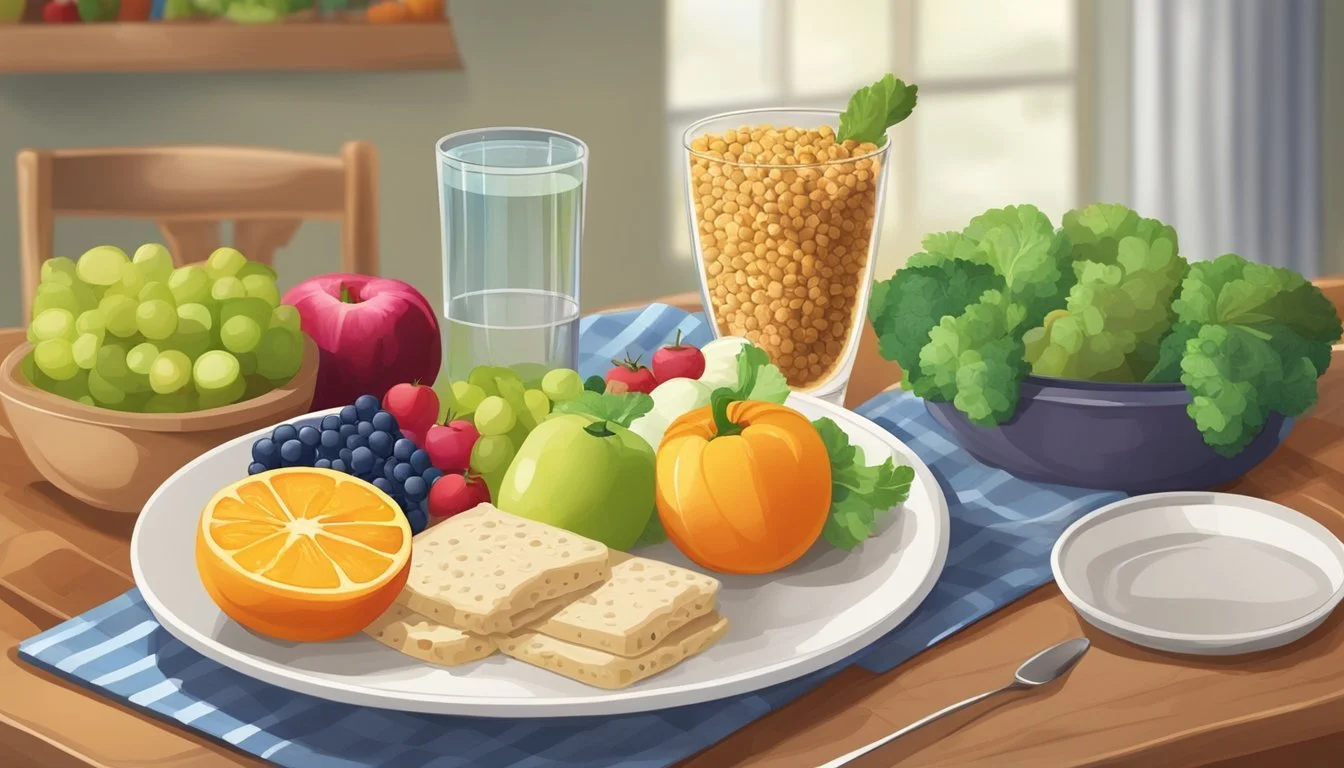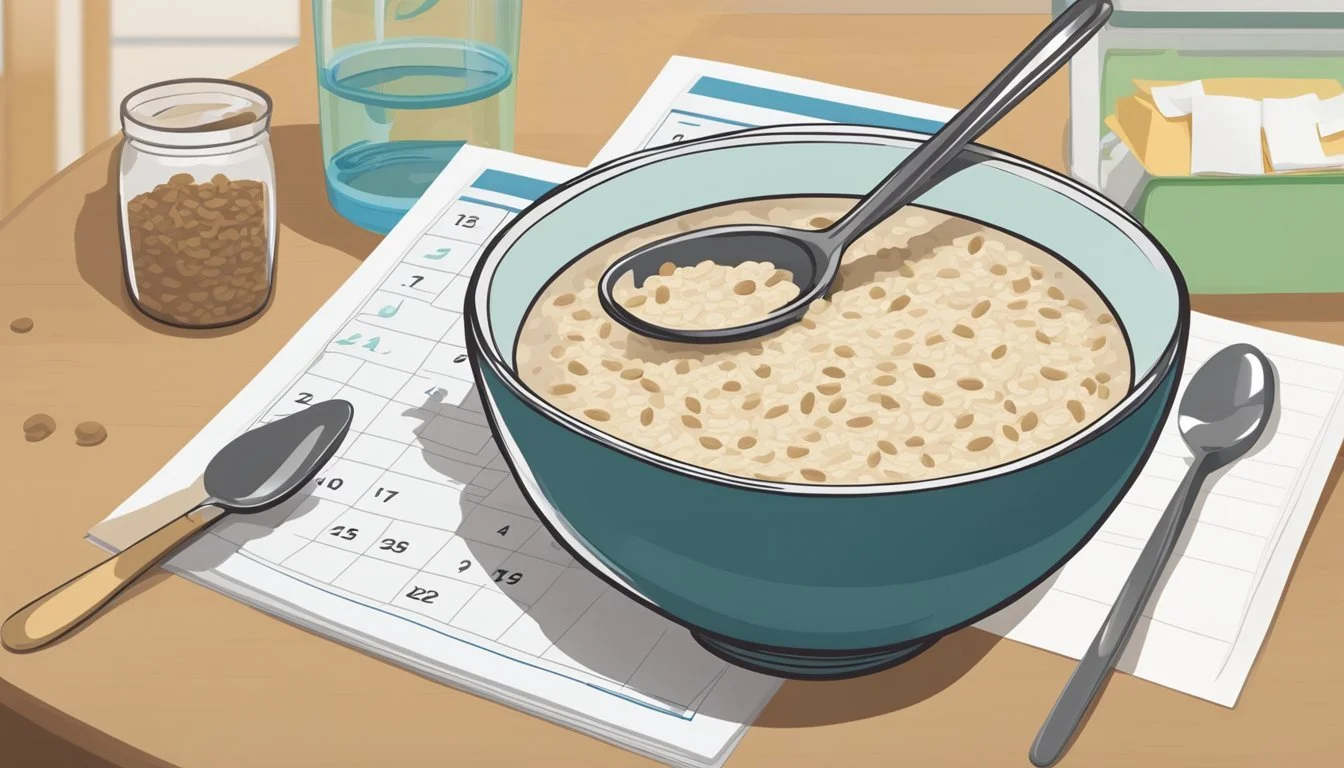Kid-Friendly Foods to Relieve Constipation in Your 6-Year-Old
For many parents, helping a young child maintain regular and healthy bowel movements can be a common concern. Various factors, including diet, can influence a child’s digestive health. By incorporating specific foods, parents can support their six-year-old's ability to poop comfortably.
Understanding which foods can aid in digestion is essential for managing a child's constipation. Establishing a simple yet effective diet can ease any discomfort and promote overall gastrointestinal health. This article aims to provide guidance on dietary choices that can assist in maintaining regularity for children.
1) Prunes
Prunes are a highly effective natural remedy for constipation in children. They contain both soluble and insoluble fiber, which help to soften stools and promote healthy bowel movements. Prunes also have natural sugars, such as sorbitol, that act as a mild laxative.
For a child who is hesitant to eat prunes, there are various ways to incorporate them into their diet. Prune juice can be mixed into a smoothie or even milk, making it easier for children to consume.
Prune puree is another option. It can be blended with yogurt or spread on toast. This makes it more palatable while retaining its digestive benefits. Additionally, prunes provide important nutrients like vitamin A and potassium.
Health experts recommend starting with small servings. An ounce of prune juice or a few whole prunes should be enough to see noticeable results. Adjust the amount as needed based on individual response.
Always ensure the child stays well-hydrated. This will help the fiber in prunes to work more effectively. By making these small dietary changes, parents can help manage their child's constipation in a gentle and natural way.
2) Pears
Pears are an excellent choice for alleviating constipation in 6-year-olds.
They are rich in dietary fiber, especially when consumed with the skin on. A medium pear can provide about 6 grams of fiber.
Fiber helps to bulk up the stool and promotes regular bowel movements by adding moisture to it.
Pears also have a high water content, which aids in softening the stool and easing its passage.
Incorporating pears into a child's diet can be simple. They can be eaten raw, added to salads, or blended into smoothies.
For a tasty treat, you can bake pears with a sprinkle of cinnamon.
This versatile fruit is not only beneficial for digestion but also appealing to young palates.
3) Peaches
Peaches are a great natural remedy for constipation in children. They are rich in dietary fiber, which helps to bulk up the stool and promote regular bowel movements. This makes them particularly effective for a 6-year-old.
The water content in peaches also aids in hydration, essential for easing constipation. Keeping kids hydrated is important in ensuring their digestive systems function smoothly.
Peaches can be enjoyed fresh, sliced, or even blended into smoothies. They can also be added to cereal or yogurt, making them versatile for various meals. Peaches are not only tasty but also gentle on a child's digestive system.
Including peaches in a 6-year-old's diet can be an easy and delicious way to help them poop regularly.
4) Applesauce
Applesauce is a gentle and effective remedy for helping children alleviate constipation. It is easy for kids to eat and can be included in various meals and snacks.
Applesauce contains both soluble and insoluble fiber, which are crucial for bowel health. Soluble fiber absorbs water and helps soften stools, while insoluble fiber adds bulk and facilitates movement through the digestive tract.
When choosing applesauce, opt for unsweetened varieties. Added sugars can sometimes worsen constipation. Homemade applesauce is also a great option, as it allows control over the ingredients used.
Incorporating applesauce into a child's diet can be as simple as serving it as a snack, mixing it with yogurt, or adding it to oatmeal. It can also be used as a healthier substitute for oil or butter in baking recipes.
Serve applesauce alongside other high-fiber foods to maximize its benefits. Pairing it with whole grain toast or adding a sprinkle of flax seeds can enhance its stool-softening properties.
Applesauce is not only beneficial for constipation relief but also packed with vitamins and antioxidants, making it a nutritious choice for children's overall health.
5) Oatmeal
Oatmeal can be a great food choice for helping a 6-year-old relieve constipation. Rich in both soluble and insoluble fiber, it promotes healthy digestion.
Instant oatmeal often contains about 4 grams of fiber per serving. This makes it an easy and quick option for parents to prepare.
The versatility of oatmeal is another plus. It can be served with fruits like berries or apples to increase fiber intake. It's also possible to mix in flaxseed meal for added benefits.
Introducing oatmeal into a child's diet can be simple. Consider serving it for breakfast or as an afternoon snack.
It's important to encourage children to drink plenty of water along with eating oatmeal. Combining fiber-rich foods with adequate hydration is crucial for preventing constipation.
Both traditional and instant oatmeal options are beneficial. Consistent consumption can help keep a child's digestive system regular.
6) Barley
Barley is a whole grain that can help alleviate constipation in children. It is rich in dietary fiber, which aids in promoting regular bowel movements.
Including barley in a child’s diet can be both beneficial and versatile. It can be added to soups, stews, or salads, making it easy to incorporate into meals they already enjoy.
Consuming foods high in fiber like barley can help maintain a healthy digestive system. It ensures that the stool remains soft, reducing the risk of constipation.
Barley also contains important nutrients such as vitamins and minerals. These contribute to a child’s overall health by supporting their growing bodies.
When preparing dishes with barley, it’s important to cook it correctly. This ensures that it retains its nutritional benefits and remains palatable for a six-year-old.
Introducing barley to a child’s diet should be done gradually. This allows their digestive system to adjust to the increased fiber content, minimizing any potential discomfort.
Providing a balanced diet with adequate fluids is also crucial. Fiber works best when accompanied by sufficient water intake, helping to further prevent constipation.
Understanding Digestive Health
The digestive system plays a critical role in overall health. It breaks down the food we eat into nutrients, which the body uses for energy, growth, and cell repair.
A healthy digestive system ensures that the body gets the vitamins, minerals, and other nutrients it needs. This keeps kids active and supports their development.
Fiber is essential for a healthy digestive system. High-fiber foods include fruits, vegetables, and whole grains. These foods help move food smoothly through the digestive tract and prevent constipation.
Hydration is also important. Drinking plenty of water aids digestion by helping dissolve fats and soluble fiber. This makes it easier for these substances to pass through the digestive tract.
Another vital element in digestive health is the presence of good bacteria. Foods like yogurt, which contain probiotics, support these beneficial bacteria. This promotes better gut health and regular bowel movements.
Children need different amounts of fiber based on their age. For example, a six-year-old requires around 11 grams of fiber per day. Introducing fiber-rich foods gradually can help avoid any digestive discomfort.
Below is a table highlighting some high-fiber foods:
Food Type Apples Fruit Broccoli Vegetable Whole Wheat Bread Grain Kidney Beans Legume
Encouraging kids to eat a variety of these foods can promote good digestive health and regular bowel movements.
Common Causes of Constipation in Children
Constipation in children can often be traced back to factors related to diet, hydration, and physical activity. Each of these plays a pivotal role in maintaining regular bowel movements.
Dietary Factors
Children's diets that are low in fiber can significantly contribute to constipation. Foods high in fiber include fruits, vegetables, and whole grains that help to bulk up stool and promote regular bowel movements.
On the other hand, excessive consumption of dairy products like cheese and milk has been linked to constipation. Reducing dairy intake can be beneficial for children experiencing this issue.
Large amounts of processed foods and sweets, which lack necessary nutrients and fiber, can also lead to hard, dry stools that are difficult to pass.
Hydration Issues
Adequate fluid intake is crucial for softening stools and ensuring they pass smoothly through the digestive system. Children often need about 50-60 ounces of water daily to maintain optimal hydration.
Dehydration can lead to dry, hard stools that are painful to excrete. It's important to encourage children to drink water regularly throughout the day, especially during hot weather or after physical activities.
Drinks like sugary sodas or juices should be limited, as they can contribute to dehydration and do not provide the necessary hydration that water does.
Lack of Physical Activity
Physical inactivity is another common cause of constipation in children. Regular exercise stimulates the muscles of the intestines and helps in promoting regular bowel movements.
Children who spend excessive time sitting, such as watching TV or playing video games, are at higher risk of experiencing constipation. Encouraging physical activities like playing outside, sports, or even daily walks can significantly improve digestive health.
Physical activity also helps to reduce stress, which can be a contributing factor to constipation, making it doubly beneficial for children’s overall well-being.
Foods to Incorporate for Better Digestion
For a 6-year-old struggling with constipation, focusing on fiber-rich foods and hydrating fruits and vegetables is essential. These dietary choices can promote smoother bowel movements and alleviate discomfort.
High-Fiber Foods
High-fiber foods play a critical role in improving digestion and easing constipation. Whole grains such as oats, brown rice, and whole wheat bread provide a substantial amount of dietary fiber.
Incorporate fruits like apples, pears, and berries daily. These fruits contain pectin and other soluble fibers, which soften stools and facilitate easier bowel movements.
Vegetables are also vital. Carrots, broccoli, and peas can be added to meals in various forms to ensure adequate fiber intake.
Introduce nuts and seeds like flaxseeds and almonds gradually to avoid overwhelming a child’s digestive system.
Hydration through Fruits and Vegetables
Hydration significantly impacts digestion. Fruits with high water content, such as watermelon, oranges, and papaya, not only provide essential nutrients but also help keep stools soft and regular.
Cucumbers and celery are notable for their hydrating properties and can be included as snacks or added to salads.
Kiwifruit is another excellent option due to its high water content and the presence of actinidine, an enzyme beneficial to digestion.
Encourage the child to consume plenty of fresh fruit juices and smoothies, which can be more appealing while ensuring they stay hydrated.
Simple Lifestyle Changes
Incorporating certain habits and activities into a child's daily routine can significantly reduce constipation. Key strategies include creating a regular bathroom routine and encouraging physical activity.
Creating a Routine
Establishing a consistent bathroom schedule is crucial. Encourage the child to sit on the toilet at the same times each day, preferably about 30-60 minutes after meals. This practice often aligns with the body's natural digestion cycle, making it more effective. Sitting for 10 minutes can be sufficient.
Use a stool to ensure the child's feet are flat on the ground while sitting. This position can help relax the pelvic floor muscles, making bowel movements easier. A reward system can also motivate young children to stick to the routine. Consistency and patience are key here.
Encouraging Physical Activity
Physical activity plays a vital role in promoting regular bowel movements. Activities such as running, playing outside, or swimming help stimulate the digestive system. Aim for at least 60 minutes of light to moderate exercise each day.
Incorporating fun activities like bike riding or a family walk can make exercise enjoyable for the child. Physiologically, movement increases intestinal muscle activity, assisting in the passage of stools. Even simple movements like jumping or dancing around the house can have a positive effect. Encouraging regular physical activity creates a healthier daily routine for the child.










